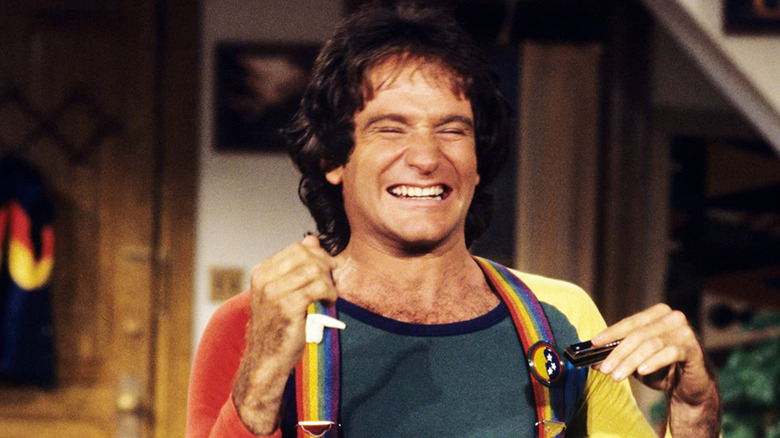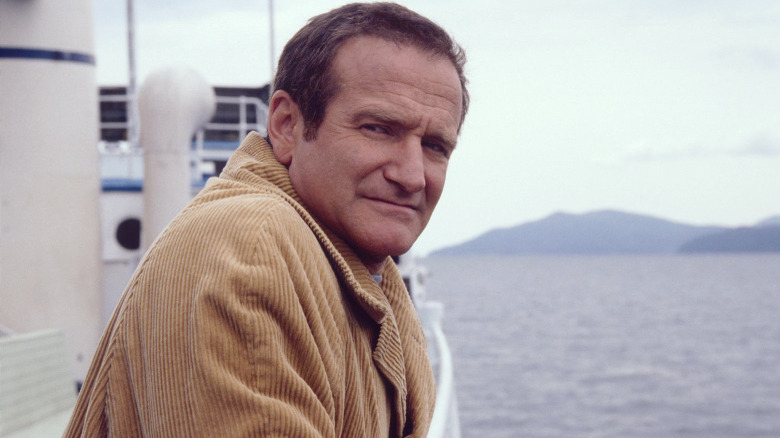How Robin Williams Nearly Ended Up In The Shining
Stephen King tends to support many of the movies and TV series adapted from his novels and short stories, with the notable exception of Stanley Kubrick's "The Shining." The author has long taken issue with the way Kubrick's classic horror film re-works his book — enough so that it inspired him to write and produce a not-so-beloved miniseries adaptation of "The Shining" in the late 1990s.
Prominent among the things King has criticized Kubrick's movie for is its casting of Jack Nicholson as Jack Torrance, the struggling writer who accepts a job as the off-season caretaker at the haunted Overlook Hotel, only to try to kill his wife and son with an axe under the influence of the building's supernatural entities. Nicholson, King has argued, had too much of a devilish screen persona to convincingly portray Jack's evolution from a decent everyman into a vicious murderer, coming on the heels of his Oscar-winning turn in "One Flew Over the Cuckoo's Nest."
Funnily enough, Kubrick had similar concerns about another famous actor (and then-future Oscar-winner) he considered for the role before casting Nicholson: Robin Williams. As the story goes (via Screen Rant), Kubrick came seriously close to hiring Williams for "The Shining," only to drop the idea after watching an episode of "Mork and Mindy." The hit sitcom, a "Happy Days" spinoff centered on Williams' outlandish alien Mork from the show's infamous "Jumping the Shark" season, convinced Kubrick that Williams was "too psychotic" to play Jack Torrance, and the rest is history.
Here's Robin!
Kubrick's concerns about Williams are understandable. This was years before the latter demonstrated his dramatic acting chops in "Dead Poets Society" and proved that he could believably portray someone as reserved as Dr. Malcolm Sayer from "Awakenings." And as renowned as Williams was for his bouncing-off-the-walls comedic performance style, he also continued to hone his craft and play more serious, melancholic characters over the course of his career, even after winning an Oscar for his turn in the 1997 drama "Good Will Hunting."
Perhaps most relevant to this discussion, Williams showed just how quietly unsettling or even chilling he could be with his dual roles in 2002's "One Hour Photo" and "Insomnia." It's his work in those movies, especially, that leave you wondering how the actor would've handled the role of Jack Torrance. Where Nicholson imbued Jack with a menacing air from the start before plunging into horror-comedy territory with his antics, Williams might have played Jack's internal journey as a more slow-burn and grounded procession.
One imagines Williams would have really thrived in a "Shining" adaptation that had him play Jack as a sincere family man corrupted by the Overlook's malevolent forces and his alcoholism relapse, like in King's book. The only problem with that scenario? Kubrick's movie saw Jack as an entitled jerk from the get-go and played down his substance abuse (a change King very much disliked). So, in that sense, Kubrick was accidentally correct about Williams not being a fit for his film.

